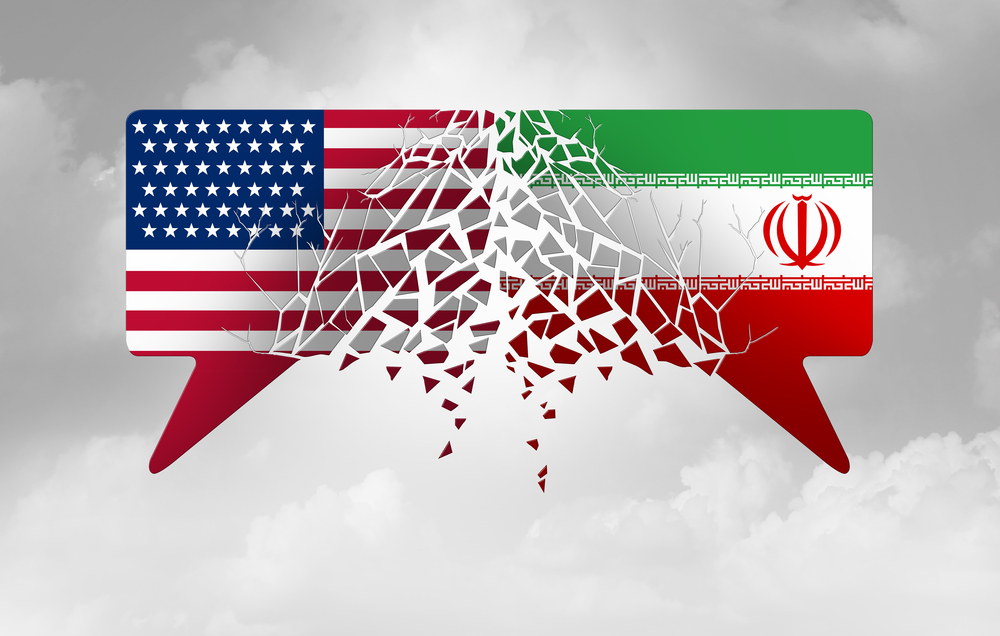Building on its reputation as an unreliable diplomatic partner, the United States announced on October 12 that it was pulling out of the deal that would have granted Iran access to $6 billion of its money in exchange for the release of five American prisoners. This rare diplomatic success between the U.S. and Iran took months to work out, only to see the U.S. break its word again and renege on the deal.
In 2018, the United States granted a waiver for South Korea to continue purchasing Iranian oil despite American sanctions on Iran. Instead of being deposited in Iran, the money for the oil would be placed in South Korean accounts that could be accessed by Iran for humanitarian goods in South Korea that were not sanctioned. However, entanglements in the web of the sanctions regime made it impossible for Iran to withdraw money from its account. Meanwhile, five Americans were being held prisoner in Iran.
Under the deal worked out between the two countries, the South Korean accounts would be transferred to Qatar where they would remain out of reach of Iran except for the purchase of humanitarian items like medicine, medical supplies, and food. The money would go, not to the Iranian government, but directly to the vendors who provided the goods. In exchange, Iran would release the five prisoners.
On September 18, Iran kept its word and released the five prisoners. A month later, the United States broke its word and denied Iran access to its $6 billion. Though it is not known if the refreeze is permanent, U.S. officials say that “case-by-case applications to spend [the funds] under the current arrangement will be denied for the foreseeable future.”
This is not the first time the U.S. has broken an agreement with what must be a frustrated and furious Iran. On May 8, 2018 the U.S. unilaterally and illegally pulled out of the JCPOA nuclear agreement with Iran that was successfully limiting Iran’s civilian nuclear program.
As with the current hostage deal, Iran kept its word and was in full compliance with the JCPOA nuclear deal when the U.S. broke its word. Eleven consecutive International Atomic Energy Agency reports verified that Iran was completely and consistently in compliance with their commitments under the agreement.
The solidifying American reputation cannot help but be a significant impediment to future important negotiations with Iran. It will also likely tarnish U.S. credibility as a diplomatic partner or broker in other parts of the world. Much of the non-NATO world—that is, the global majority—is already reeling from the realization of how the United States’ broken promise on NATO non-expansion east to the borders of Russia contributed to the current crisis in Ukraine.
This broken deal is not only not the first broken deal with Iran, but it is also not the first time the United States has reneged on a deal that freed American prisoners. In 1963, Fidel Castro freed American prisoners after receiving hints that their release could lead to a process of reconciliation, only to see the U.S. disappoint on its commitments.
Iran, on the other hand, has, in the past, kept its word on freeing American prisoners. When Iranian President Hashemi Rafsanjani promised to exert Iran’s regional influence and intervene to help win the release of American hostages being held in Lebanon, U.S. President George H.W. Bush promised that Iran’s help would “be long remembered” and that, in return, Iran would get something because “goodwill begets goodwill.” Iran successfully intervened to secure the release of the Americans being held hostage; the United States sent word that Iran should expect no American reciprocation.
Biden promised a quick return to diplomacy with Iran over the JCPOA nuclear agreement and then neglected that promise. He then broke another deal with Iran after Iran had already fulfilled its obligation. The American prisoners had flown from Iran to Qatar to the United States to be, as Biden said, “reunited with their loved ones.” His administration is reinforcing the reputation started by earlier presidencies that America cannot be trusted to keep its promises. That reputation could harm U.S. credibility in future diplomatic engagements.








